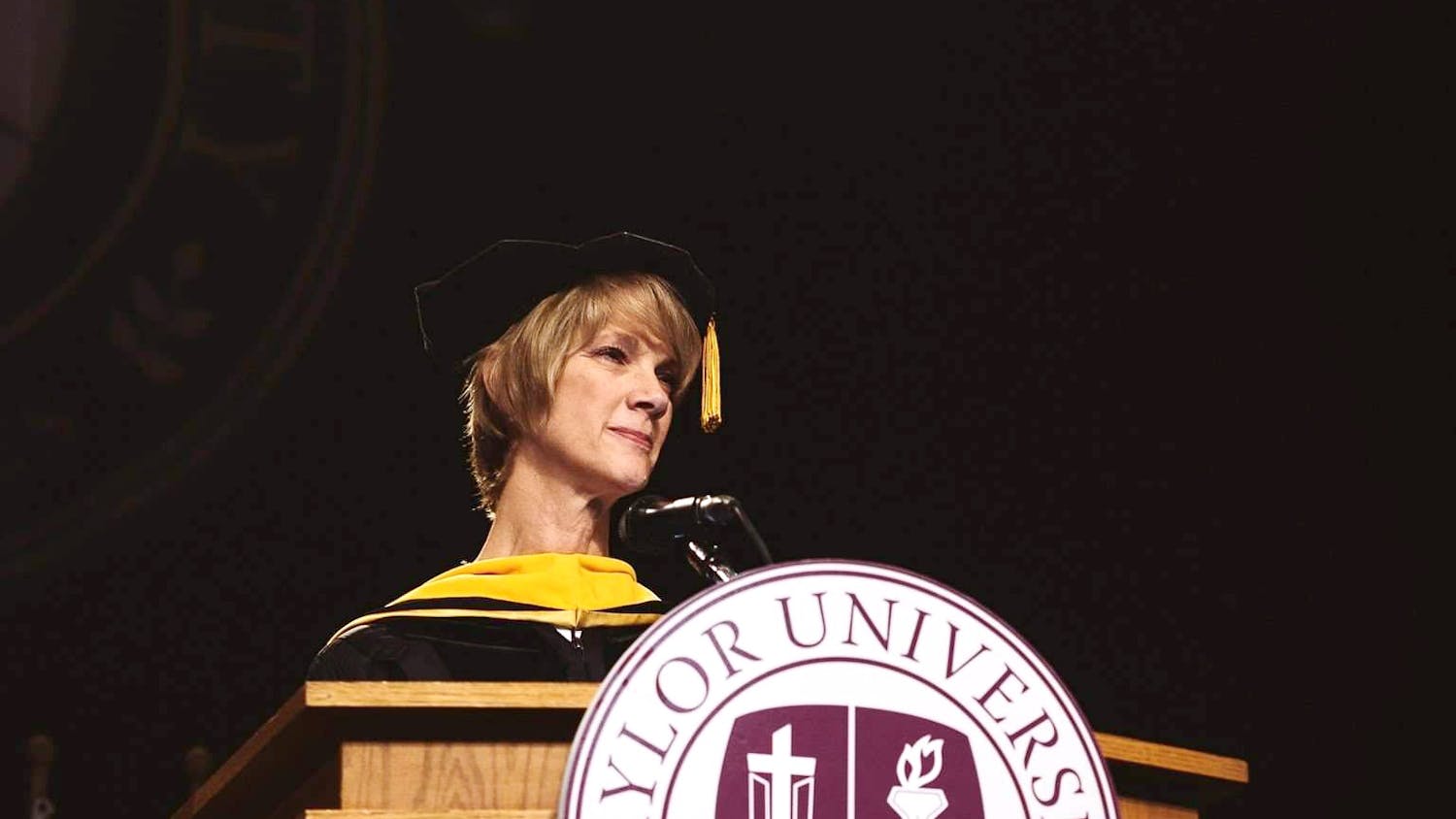The mission of Taylor University is to develop servant leaders marked with a passion to minister Christ’s redemptive love and truth to a world in need.
This was Taylor’s mission statement up until this summer. As part of Taylor’s five year plan the mission statement was reviewed and two changes were made at the beginning of this semester.
A hyphen was added between the words “student” and “leaders” to make “student-leaders” and a word was added to the statement “love and truth” to make it “love, grace and truth.”
According to the email sent to Taylor students on Sept. 1, the hyphen was added to clarify the mission statement and the word “grace” was added to directly reference Scripture.
Hyphenating “servant-leaders” places an emphasis on the kind of students Taylor is training. They are servants who lead, instead of being leaders who happen to serve.
The second change was somewhat bigger and had more debate surrounding it. Adding faith to the mission statement was meant to parallel John 1:14: “The Word became flesh and made his dwelling among us. We have seen his glory, the glory of the One and Only, who came from the Father, full of grace and truth.”
While there were many people involved in deciding the changes made to the mission statement, President Lindsay sent the proposed changes to the Bible department in particular to ask for their input.
Lindsay’s first proposal was to change love and truth to grace and truth. The Bible professors had varied reactions, some agreeing with this idea and some wanting to add the word grace but keep the word love as well.
Professor of Biblical Studies Edward Meadors said that love is at the core of our identity at Taylor, so he favored keeping the word. But he also said grace is a very important addition.
“We need people to sacrifice their biases in order for peace to take place and to give people what they don't deserve, in some cases: Grace,” Meadors said. “So I think it's contextually very important, essential, in a community of people who are prone towards their own biases and polarizations, in a community of sinners to cultivate the virtue of grace.”
Associate Professor of Biblical Studies Richard Smith does not think the word love is a problem to add, but he also does not think it is necessary.
Smith said that the grace and truth mentioned in John came into being through Jesus Christ. God’s love is part of it, but the only way to access that love is through the grace and truth of Christ.
“A mission statement on paper, you know, unless it's continually reflected upon is worthless,” Smith said. “Or to say it another way, a community that doesn't have theology coursing through its veins, its life and biblical categories of the knowledge of God coursing through his veins, then no matter how good your mission statement may be, it’s not going to guide you.”
Although the changes don’t amount to more than six new characters in the mission statement, they underscore the statement’s importance.
As Taylor’s president and administration move forward with the five year plan, the mission statement is in their considerations.
“It is gratifying to work (at) an institution where faculty, staff, and students are so deeply committed to our mission,” President Lindsay said. “The slight refinements to our mission statement underscore Taylor’s historic commitment to servant-leadership and to embodying the biblical virtues of love, grace, and truth.”
The change is something students, faculty and external communities can see and helps bring an awareness of Taylor’s goals.
After much thought and reflection, Taylor’s current mission statement:
The mission of Taylor University is to develop servant-leaders marked with a passion to minister Christ’s redemptive love, grace, and truth to a world in need.





